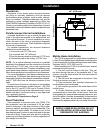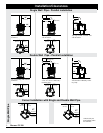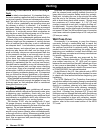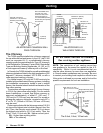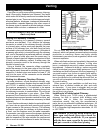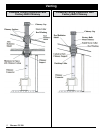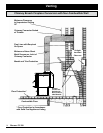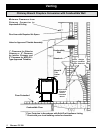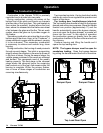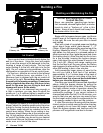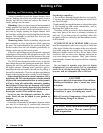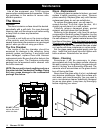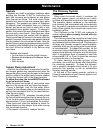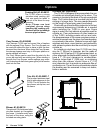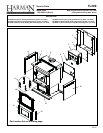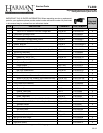
Combustion in the Harman TL300 is precisely
controlled and is divided into two parts.
During combustion, primary air enters at the
bottom front of the stove and travels up channels
at either side of the front door. This pre-heated air
then enters the manifold, located above the front
door, where it is released into the rebox as a sheet
of air between the glass and the re. This air-wash
system cleans the glass as it provides oxygen to
the rebox.
Secondary combustion air enters the stove at the
bottom rear of the stove. Here, in the "Firedome", it
mixes additional oxygen with the exhaust, causing
it to be re-burned. This secondary combustion
is necessary to achieve and sustain long, clean
burning.
During combustion, the burning of wood proceeds
through several stages. The initial or evaporation
stage is where the moisture in the wood is driven off
in the form of steam. During the second stage, the
volatile gases contained in the wood are released
and burned. This represents most of the wood's
heating capacity. The nal stage is the charcoal
stage where the charcoal burns the remaining
heat content out of the fuel. Ash remains after the
burning is complete. Within the primary rebox,
two or more of these stages of combustion are
occurring simultaneously.
Two important controls - the top load door handle
and the air control lever regulate the operation and
output of the stove.
The top loading door handle is linked to the bypass
damper and serves two purposes. Move the handle
forward one position (approximately 3") and the
handle automatically opens the bypass damper,
you must open the bypass damper, or smoke will
come into the room. In this mode of operation
the combustion gases go directly from the main
combustion chamber to the ue collar and exit into
the chimney.
Continue moving and lifting the handle and it
opens the top loading door.
Open the bypass damper
by pulling the handle toward the front of the stove.
Damper Open
Damper Closed



